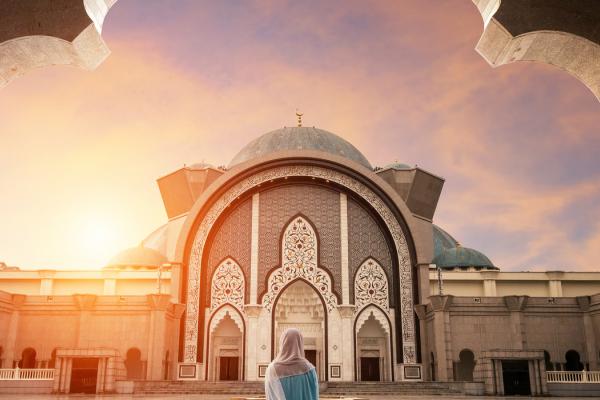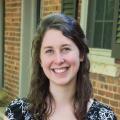I am a Christian who was raised, and now choose, to profess Christ as Lord and Savior. I was born into a white middle-class family in suburban Maryland. I was part of the majority of Americans who received little education on Islam. I didn’t know that, in addition to sharing a common humanity, we also shared core teachings of our faith. It was not until I left home, at age 17 that I even met anyone who identified as Muslim.
Now I work at Davidson College in the Chaplain’s Office, as an interfaith educator. My job includes supporting students who live faithfully according to the practice and teachings of Islam. Every day, I find that students who identify as Muslim teach me to be a better Christian and a better citizen.
Islam deeply values humility. The Arabic word Muslim means “one who submits [to God].” Submission takes many forms, including daily time for prayer and bowing oneself before God, offering hospitality to one’s family and neighbors, and cherishing peace. I learn from practitioners of Islam the teaching of Jesus that “those who humble themselves will be exalted,” for they place God before all else (Matthew 23:12). Without humility, we destroy our own social fabric.
Islam teaches concern for the vulnerable, no matter their faith or ethnicity. One pillar of Islam, “zakat,” focuses on the obligation to give to society. The Prophet Muhammad, peace be upon him, said, “Charity given to a relative serves a double purpose, being both charity and a connecting link.” At Davidson, students who identify as Muslim work with their Catholic, Jewish, Protestant, Hindu and secular peers on issues core to society including access to education, healthcare, racial justice, and women’s rights. They have taught me to find the cross-threads of LGBTQ rights and religious freedom. These students live out their faith in a way that benefits all of society, not just their own community, in a way that inspires me to do the same.
Islam is built upon respect for difference. “There is no compulsion in the Muslim faith,” one student taught me. She welcomed dialogue about our differences and shared understandings of truth, offering questions in respect. Last week, the President of the Muslim Students Association at Davidson attended a Christian Bible study to learn about our Scriptures, and brought eight Muslim students to have dinner with Presbyterians. Rather than being threatened by difference, the opportunity to learn from others strengthens his faith.
One of my faith heroes, a Muslim from Chicago named Eboo Patel, founded the Interfaith Youth Core to bring together youth from different faith-based and secular worldviews to work on common social concerns. “We make our nation holy by how we relate to one another,” he said before 300 college-aged leaders from diverse faith backgrounds in Atlanta last week.
Patel urged us to find those with whom we deeply disagree and find a way to work together, as Muslims and Christians have found ways to do since our nation’s founding. Unity does not require uniformity in Islam; rather, as stated by the Quran, “We have made you into tribes and nations so that you may know [or recognize] one another.”
Islam teaches mercy and compassion in the face of hatred. Following the election, I listened to six Muslim students share their testimonies of faith. One student spoke to her conviction that in the face of persecution, her faith is tested and strengthened, and thus she would not succumb to Islamophobia. In 2014, San Francisco physician Dr. Suzanne Barakat lost three family members (including her younger brother Deah) to an anti-Muslim hate crime at UNC Chapel Hill. She could have become vengeful, or radicalized. Instead, she is more dedicated than ever to her medical practice, even serving clients that even harass her for wearing the hijab with compassion and kindness, calling others to the path of greater humanity.
“Blessed are those who are persecuted because of righteousness,” says Jesus (Matthew 5:10). While Muslims are being persecuted by Islamophobic rhetoric and actions, this week Davidson student leaders gathered the community to show support for refugees and victims of hate crimes. They asked for greater understanding over fear, compassion over distrust. More than 300 people gathered to write letters of love and support to Muslim neighbors, reflecting the Islamic vision of God as all merciful and compassionate.
The Quran teaches that “verily with hardship, there is relief.” I have found relief in community with Muslim sisters and brothers, with whom I share common virtues and a common future. I love them not despite of my faith, but because of it. After all, Jesus was a Palestinian refugee who loved his neighbors, even those who did not share his Jewish faith. As a Christian, I have no choice but to do the same.
And as an American, I am convinced that we need Islam to teach us humility, mercy, charity, respect, and dignity. We belong to one another. This, for our humanity, we cannot forget.
Got something to say about what you're reading? We value your feedback!

